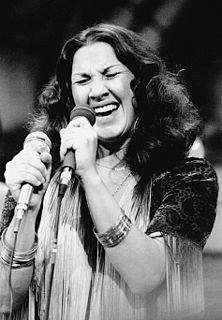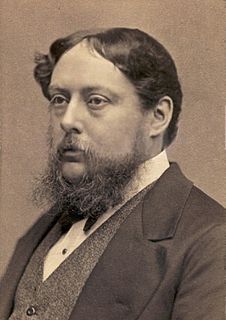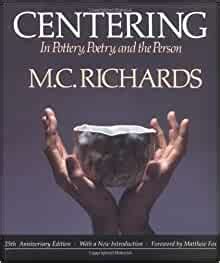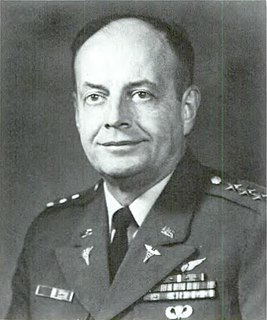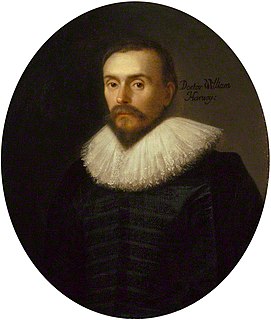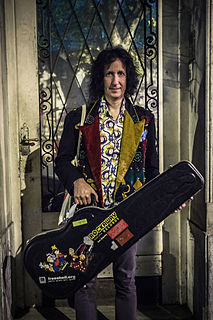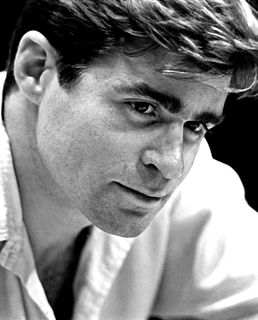Top 523 Organ Quotes & Sayings - Page 9
Explore popular Organ quotes.
Last updated on December 21, 2024.
You must do the asana with your soul. How can you do an asana with your soul? We can only do it with the organ of the body that is closest to the soul - the heart. So a virtuous asana is done from the heart and not from the head. Then you are not just doing it, but you are in it. Many people try to think their way into an asana, but you must instead feel your way into it through love and devotion
To-day, to-morrow, every day, to thousands the end of the world is close at hand. And why should we fear it? We walk here, as it were, in the crypts of life; at times, from the great cathedral above us, we can hear the organ and the chanting choir; we see the light stream through the open door, when some friend goes up before us; and shall we fear to mount the narrow staircase of the grave that leads us out of this uncertain twilight into life eternal?
Five per cent vision is better than no vision at all. Five per cent hearing is better than no hearing at all. Five per cent flight efficiency is better than no flight at all. It is thoroughly believable that every organ or apparatus that we actually see is the product of a smooth trajectory through animal space, a trajectory in which every intermediate stage assisted survival and reproduction.
No matter how advanced society becomes, institutionally or technologically, a house in which nature can be sensed represents for me the ideal environment in which to live. From a functional viewpoint, the courtyard of the Rowhouse in Sumiyoshi forces the inhabitant to endure the occasional hardships. At the same time, however, the open courtyard is capable of becoming the house's vital organ, introducing the everyday life and assimilating precious stimuli such as changes in nature.
How infinitely happier and more grateful is the whole personality or spirit when it finds something nourishing in art or writing or thinking, than the mere mind or intellect is: the kinship you celebrate in these personalities is your own dismembered Orpheus stumbling across another fine organ to rejoin to itself. I put it this way: aristic psyche loves itself enough to chasten itself, to put itself through boot camp for the sake of being competent for life, alive to life.
Well, I've heard a lot of people, but I think I would say a Brazilian musician named Hermeto Pascoal was one of my biggest influences. Through the years he mastered the keyboards. He use to play the organ Hammond B3, flute, saxophone, percussion and guitar. He is one of the most complete musicians that I ever met. Not too long after we came to the United States, Airto Moreira introduced him to Miles Davis, who recorded three of Hermeto's compositions on his album "Live Evil.
Words, words, word. Once, I had the gift. I could make love out of words as a potter makes cups of clay. Love that overthrows empire. Love that binds two hearts together, come hellfire & brimstone. For sixpence a line, I could cause a riot in a nunnery. But now -- I have lost my gift. It's as if my quill is broken, as if the organ of my imagination has dried up, as if the proud -illegible word- of my genius has collapsed.
Unfortunately, in rich-world health, innovation is both your friend and your enemy. Innovation is inventing organ replacement, joint replacement. We're inventing ways of doing new things that cost $300,000 and take people in their 70s and, on average, give them an extra, say, two or three years of life. And then you have to say, given finite resources, should we fire two or three teachers to do this operation?
There's a reason I said I'd be happy alone. It wasn't 'cause I thought I'd be happy alone. It was because I thought if I loved someone and then it fell apart, I might not make it. It's easier to be alone. Because what if you learn that you need love and then you don't have it? What if you like it and lean on it? What if if you shape your life around it and then it falls apart? Can you even survive that kind of pain? Losing love is like organ damage. It's like dying. The only difference is death ends. This, it could go on forever.
There are two kinds of music. One comes from the strings of a guitar, the other from the strings of the heart. One sound comes from a chamber orchestra, the other from the beating of the heart's chamber. One comes from an instrument of graphite and wood, the other from an organ of flesh and blood. This loftier music I speak of tonight is more pleasing than the notes of the most gifted composers, more moving than a marching band, more harmonious than a thousand voices joined in hymn and more powerful than all the world's percussion instruments combined. That sweet sound of love.
The assumption that everything past is preserved holds good even in mental life only on condition that the organ of the mind has remained intact and that its tissues have not been damaged by trauma or inflammation. But destructive influences which can be compared to causes of illness like these are never lacking in the history of a city, even if it has had a less chequered past than Rome, and even if, like London, it has hardly ever suffered from the visitations of an enemy.
You can go to doctors until the last cow has been placed in its shed. You can journey the earth in search of peace of mind. You can experiment with a dozen theories, hoping for a relief from worries, or the problems which beset you, but unless you learn to relax you will end up disappointed. Tension is a killer! Just relax and note the immediate effect. One of peace and ease of mind. One in which every organ of the body joins. In relaxation there is unity of mind, body and spirit.
My mother wanted me to learn how to read music. She'd given fiddles to my two older brothers, but they'd rebelled. I came along and my father said, "Oh, let Peter enjoy himself." What she did was leave musical instruments all around the house. Whistles, marimbas, squeeze boxes, a piano and organ. By age six or seven, I could bang out a simple tune on almost anything. I developed a good ear, so I didn't learn to read music until I taught myself at age eighteen, 'cause I was hearing so many good songs I couldn't possibly remember them all.
To me the sole hope of human salvation lies in teaching Man to regard himself as an experiment in the realization of God, to regard his hands as God's hand, his brain as God's brain, his purpose as God's purpose. He must regard God as a helpless Longing, which longed him into existence by its desperate need for an executive organ.
Our times seem to be so much about redefining where we are physical and where we're not. For me, it is really exciting to take the cutting edge technology and take it as far as it can get virtually, use it to describe/control the musicology or the behavior of raw natural elements, and then plug it with a sound source which is the most acoustic one there is - like gamelan and pipe organ. So you get the extremes: very virtual and very physical. In that way you shift the physicality.
During the last century, and part of the one before, it was widely held that there was an unreconcilable conflict between knowledge and belief. The opinion prevailed amoung advanced minds that it was time that belief should be replaced increasingly by knowledge; belief that did not itself rest on knowledge was superstition, and as such had to be opposed. According to this conception, the sole function of education was to open the way to thinking and knowing, and the school, as the outstanding organ for the people's education, must serve that end exclusively.
There’s a reason humans peg-out around eighty: prose fatigue. It looks like organ failure or cancer or stroke but it’s really just the inability to carry on clambering through the assault course of mundane cause and effect. If we ask Sheila then we can’t ask Ron. If I have the kippers now then it’s quiche for tea. Four score years is about all the ifs and thens you can take. Dementia’s the sane realisation you just can’t be doing with all that anymore.
I never felt like that before. Maybe it could be depression, like you get. I can understand how you suffer now when you're depressed; I always thought you liked it and I thought you could have snapped yourself out any time, if not alone then my means of the mood organ. But when you get that depressed you don't care. Apathy, because you've lose a sense of worth. It doesn't matter whether you feel better because you have no worth.
Frequently, I go straight into the studio and see what's around. I might hire a couple of instruments that I've never used - maybe a particular type of electronic organ or an echo unit. Then I just dabble with sounds until something starts to happen that suggests a texture. The texture suggests some kind of mood, and the mood suggests some kind of lyric. That's like working in reverse, often quite the other way around, from sound to song. Although often they stop before they get to the song stage.
I played a couple of ideas and then had this unusual texture underneath which was like this little granulated kind of pipe organ almost like a scratchy record which he started [inaudible] brilliantly. "Oh I love that song." And when things go fine, it's good. So he started loving that song and that song was used quite a lot in the movie which is very granulated stuff on the guitar.
In the field of economics we maintain to this day some of the most primitive ideas, some of the most radically false ideas, some of the most absurd ideas a brain can hold. ... but all this give no uneasiness to the average brain. That long-suffering organ has been trained for more thousands of years than history can uncover to hold in unquestioning patience great blocks of irrelevant idiocy and large active lies.
True drama can be conceived only as resulting from the collective impulse of all the arts to communicate in the most immediate way with a collective public... Thus especially the art of tone, developed with such singular diversity in instrumental music, will realize in the collective artwork its richest potential -- will indeed incite the pantomimic art of dancing in turn to wholly new discoveries and inspire the breath of poetry no less to an undreamed-of fullness. For in its isolation music has formed itself an organ capable of the most immeasurable expression - the orchestra.
Memory is therefore, neither Perception nor Conception, but a state or affection of one of these, conditioned by lapse of time. As already observed, there is no such thing as memory of the present while present, for the present is object only of perception, and the future, of expectation, but the object of memory is the past. All memory, therefore, implies a time elapsed; consequently only those animals which perceive time remember, and the organ whereby they perceive time is also that whereby they remember.
The scent organ was playing a delightfully refreshing Herbal Capriccio - rippling arpeggios of thyme and lavender, of rosemary, basil, myrtle, tarragon; a series of daring modulations through the spice keys into ambergris; and a slow return through sandalwood, camphor, cedar and newmown hay (with occasional subtle touches of discord - a whiff of kidney pudding, the faintest suspicion of pig's dung) back to the simple aromatics with which the piece began. The final blast of thyme died away; there was a round of applause; the lights went up.
There is a neuron in your brain that will respond only to pictures of Jennifer Aniston - provided you have had prior visual exposure to the actress. That neuron does not respond to pictures of Bill Clinton or Halle Berry. Only Jennifer. I used the story to explain the almost ridiculous plasticity of the organ. There is no such thing as Jennifer Aniston in our evolutionary history - she was born in 1969, for heaven's sake - but we are flexible enough to devote an entire cell to her if we have previously encountered her in some fashion.
From youth to middle, and often to past middle, age, most men are apt to be too closely engaged in the struggle of life to pay due attention to the strength of the body. They may take daily what they consider a sufficient amount of exercise; but the exercise is not calculated to keep the various limbs and muscles, still less the internal organs, in proper working order. Amid the ordinary concerns of life the man may appear strong, even stalwart. But when occasion arises for some special muscular exercise, or taxing the action of some organ, he finds out his weakness.
There are estimates that we daily walked for 10 - 20 kilometers for hundreds of thousands of years. The world's best problem solving machinery grew up under conditions of consistent, strenuous physical activity. It makes sense that when we don't recreate the environments in which the organ was forged, we get a loss of function. And that when we do restore those environments, we get that function back. The effects of aerobic exercise on executive function skills is a powerful empirical example of this idea.
One can truly say that the irresistible progress of natural science since the time of Galileo has made its first halt before the study of the higher parts of the brain, the organ of the most complicated relations of the animal to the external world. And it seems, and not without reason, that now is the really critical moment for natural science; for the brain, in its highest complexity-the human brain-which created and creates natural science, itself becomes the object of this science.
And with listening, too, it seems to me, it is not the ear that hears, it is not the physical organ that performs the act of inner receptivity. It is the total person who hears. Sometimes the skin seems to be the best listener, as it prickles and thrills, say to a sound or a silence; or the fantasy, the imagination: how it bursts into inner pictures as it listens and then responds by pressing its language, its forms, into the listening clay. To be open to what we hear, to be open in what we say. .
I must say what I admire most is the person who masters an area of practical experience, and can teach me something. I mean, my local midwife has taught me how to keep bees. Well, she can't understand anything I write. And I find myself liking her, may I say, more than most poets. And among my friends I find people who know all about boats or know all about certain sports, or how to cut somebody open and remove an organ. I'm fascinated by this mastery of the practical.
Adlai Stevenson, himself a notable speaker, often reminisced about his last meeting with Churchill. I asked him on whom or what he had based his oratorical style. Churchill replied, "It was an American statesman who inspired me and taught me how to use every note of the human voice like an organ." Winston then to my amazement started to quote long excerpts from Bourke Cockran's speeches of 60 years before. "He was my model," Churchill said. "I learned from him how to hold thousands in thrall."
On Saturday night, I would see men lusting after half-naked girls dancing at the carnival, and on Sunday morning when I was playing organ for tent-show evangelists at the other end of the carnival lot, I would see these same men sitting in the pews with their wives and children, asking God to forgive them and purge them of carnal desires. And the next Saturday they'd be back at the carnival or some other place of indulgence. I knew then that the Christian church thrives on hypocrisy, and that man's carnal nature will out no matter how much it is purged or scoured by any white-light religion.
The cause of Sense, is the External Body, or Object, which presseth the organ proper to each Sense, either immediately, as in theTaste and Touch; or mediately, as in Seeing, Hearing, and Smelling: which pressure, by the mediation of Nerves, and other strings, and membranes of the body, continued inwards to the Brain, and Heart, causeth there a resistance, or counter- pressure, or endeavor of the heart, to deliver it self: which endeavor because Outward, seemeth to be some matter without.
Sometimes I get lonesome for a storm. A full blown storm where everything changes. The sky goes through four days in an hour, the trees wail, little animals skitter in the mud and everything gets dark and goes completely wild. But it is really God - playing music in his favourite cathedral in heaven - shattering stained glass - playing a gigantic organ - thundering on the keys - perfect harmony - perfect joy.
There is a risk of death associated with donating a piece of liver. It's about one in 500 for the risk of death. The risk of death of donating a kidney is about one in 3000, so this is a riskier operation than donating a kidney. The stakes are usually higher for the recipient of the transplant because unlike kidney failure, where you have a dialysis machine, in liver failure we don't have that kind of machine that allows a patient to survive until they can get a cadaver organ.
There is one province in which, sooner or later, virtually everyone gets dealt a leading role--hero, heroine, or villain.... Unlike the slight implications of quotidian dilemmas that confront the average citizen in other areas of life ... the stakes in this realm could not be higher. For chances are that at some point along the line you will hold in your hands another person's heart. There is no greater responsibility on the planet. However you contend with this fragile organ, which pounds or seizes in accordance with your caprice, will take your full measure.
For many years there have been treatments available which are successful and usually NOT harmful for diseases, such as AIDS, cancer, cystic fibrosis, diabetes, organ regeneration and other diseases. One by one these treatments and their creators or proponents have been targeted by the FDA, which I call the "office of orthodoxy enforcement," illegally using just powers derived from the consent of governed. These forms of tyranny are always accompanied by multi agency intrusions or harassment, confiscation of private medical files, censorship of written materials and threats or prosecution.
O most sacred, most loving heart of Jesus, thou art concealed in the Holy Eucharist, and thou beatest for us still.... Thou art the heart of the Most High made man.... Thy Sacred Heart is the instrument and organ of Thy love. It did beat for us. It yearned for us. It ached for our salvation. It was on fire through zeal, that the glory of God might be manifested in and by us.... In worshipping thee I worship my incarnate God, my Emmanuel
Men ought to know that from nothing else but the brain come joys, delights, laughter and sports, and sorrows, griefs, despondency, and lamentations. And by this, in an especial manner, we acquire wisdom and knowledge, and see and hear and know what are foul and what are fair, what are bad and what are good, what are sweet and what are unsavory…. And by the same organ we become mad and delirious, and fears and terrors assail us….All these things we endure from the brain when it is not healthy….In these ways I am of the opinion that the brain exercises the greatest power in the man.
This organ deserves to be styled the starting point of life and the sun of our microcosm just as much as the sun deserves to be styled the heart of the world. For it is by the heart's vigorous beat that the blood is moved, perfected, activated, and protected from injury and coagulation. The heart is the tutelary deity of the body, the basis of life, the source of all things, carrying out its function of nourishing, warming, and activating body as a whole. But we shall more fittingly speak of these matters when we consider the final cause of this kind of movement.
I'm definitely not a laptop/midi/abelton guy. But there is a lot of music I like. I really like Bach organ music. I really like Chopin piano music. I really like Wendy Carlo's electronic music. I really like Miles Davis and John Mclaughlin jazz style. So I'm not only an old-school rocker, but I have to admit that I'm going to be listening to The Doors, Rolling Stones, Iggy Pop, David Bowie and Bob Dylan many times a week.
All good dramas are rife with conflicts, and the conflicts have to be resolved. What I think is so great about a show that takes place in a hospital is that you have so many different people with different needs. Sometimes all those can be in conflict. The drama of Heartland also comes from the group of people waiting, and they are sometimes agonizingly waiting for a new organ for their body in order to survive. So the show is so much about survival, which creates a sense of urgency to get the organs. I think that sense of urgency is probably the most prominent dramatic quality to the show.
Ours is not a dumb species. We have put a man on the moon. We have unlocked the secrets of the human genome. We have discovered how to take stem cells and coax them into becoming brain cells, heart muscle, liver tissue - any organ of the human body that needs repair. These are our miracles, and there are more. Yet we have not yet found a way to do the simplest things: To live in peace. To stop killing each other when we disagree. To distribute that which is good in life freely and fairly.





